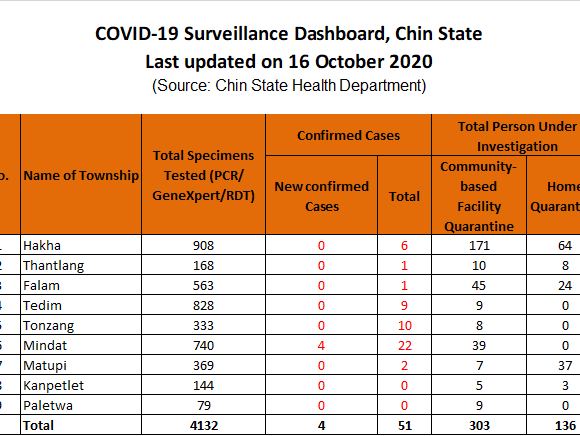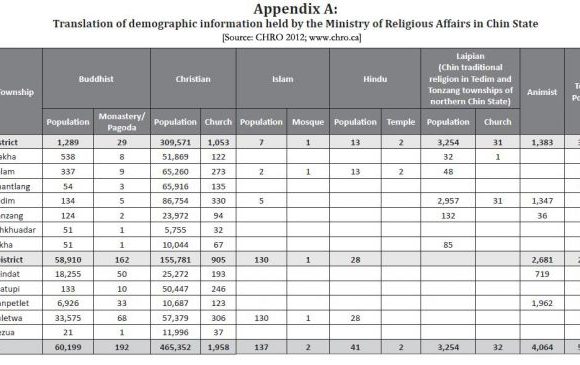In the shadow of lotus: “The Life of Chin woman workers in Macau”
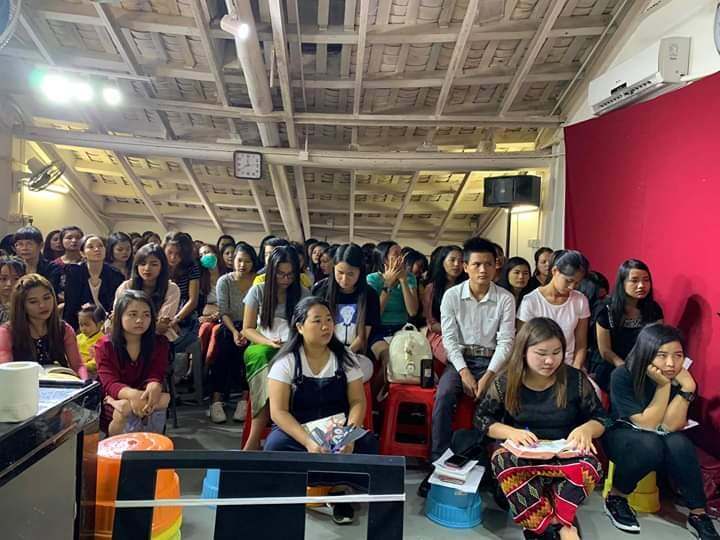
In the shadow of lotus: “The Life of Chin woman workers in Macau”
By Salai Za Bawi Thawng, M.A., in International Journalism
THEY hug with tears in their eyes, don’t want to let go of each other hands. Ngun Cer recalls, my mum says to me ‘My daughter, may God be with you,’ one cool morning in Hakha, Chin State, Myanmar, in January 2019. When the bus driver calls out for the passenger to get on, Ngun Cer finally boards the bus. She looks out from the bus window, lifts up her hand, and says goodbye.
Chin State, situated in the western part of Myanmar is one of the States among Myanmar’s seven States and seven Regions. With a population of 478,801, the poorest of all 14 States and Regions, it stands as the least developed State in Myanmar where more than 58% of the population are living below the poverty line, according to UNDP report in 2019.
With a population of 478,801, the poorest of all 14 States and Regions, it stands as the least developed State in Myanmar where more than 58% of the populations are living below the poverty line, according to UNDP report in 2019.
Ngun Cer, a 20-years-old woman, from … village, is a remote village from Hakha township. Due to the poverty of her family life, and there are no jobs that she can’t find in Chin State that she decided to go to Macau as a maid not because of her well but because of her condition.
Ngun Cer is sitting on the bus next to a man who appears to be a pastor.
“Where are you going?” Ngun Cer recalls the man asks. “Yangon? Mandalay?”
“Yangon,” Ngun Cer replies. She remembers him saying then asking, “You look miserable.”
“This is my first time riding the bus and leaving my village. I have never been to any other place,” replies Ngun Cer.
“Is there anyone who is going to pick you up at Yangon Bus station?” the man asks.
“She told me this bus will arrive in Yangon by tomorrow evening around 3 p.m. Hopefully, she will be there by the time I reach Yangon,” Ngun Cer replies.
“To whom are you referring ‘She’, is your sister, aunty or other relatives?” asks the man.
Ngun Cer speaks with a hushed voice and tells him “my agent”.
In Myanmar, there are 360 registered agencies listed on the Sui Kunistry of Labour, ImSui Kugration and Population’s official website which includes their license numbers, issue dates and expiry dates. There are eighty-eight local agencies and 272 overseas agencies as of 2019. While interviewing 17 women in Macau, none of them were clear about their agent’s details or whether they were legal or illegal.
Ngun Cer learned of her agent through the help from one of her villagers who is working in Singapore. “My villager sent me her agent’s contact number. I called the agent and she told me that she would charge intermediary fees from my first four months’ wages (approximately 18,000 MOP for four months) which would include all my transportation from Hakha to Macau. I agreed to that, the same as every worker in Chin,” says Ngun Cer.
The bus reaches Mandalay at night around 9 p.m. The man needs to get off, but Ngun Cer is going to continue her journey to Yangon. He gives 5000 Kyats (HK$ 27) to Ngun Cer, for a meal for her next journey to Yangon, and in case she needs help he also leaves his phone number.
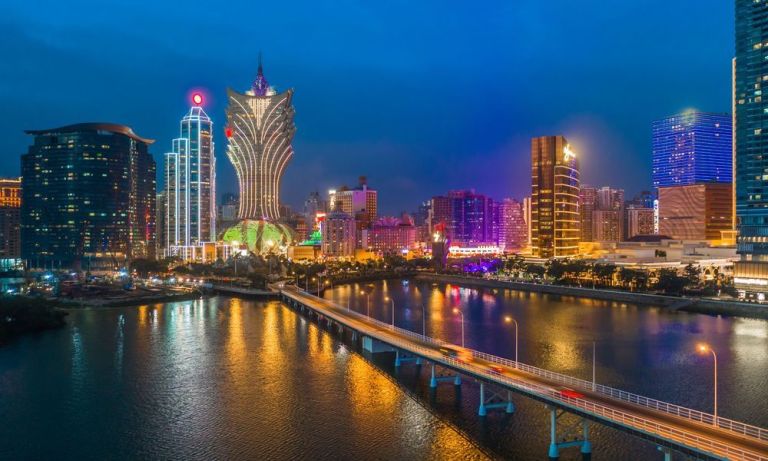
Sui Ku and Agent
Sui Ku, from Kalaymyo, Sagaing region, near the border of Chin State, has experience working as a maid in Singapore for two years in 2015-16. Now, she intends to go to Macau as a house worker. She connects with the Macau agent in Yangon and the agent sends her 200,000 Kyats (HK$1090) for her transportation to Yangon.
Salai Van Biak Thang, Director of Peace, Democratization and Development (PDD) at Chin Human Rights Organization (CHRO) says that the majority of the Chin women went through illegal agents and sometimes they got mistreated. “They connect with agents on their own. On the other hand, these agents are also finding the women who want to go Macau, and mostly they are an illegal agency.”
“They connect with agents on their own. On the other hand, these agents are also finding the women who want to go Macau, and mostly they are an illegal agency.”
-Salai Van Biak Thang (CHRO)
Sui Ku, a 25-Year-Old woman, takes the Taxi from Yangon Bus terminal to the agent’s house. They follow the address that the agent gave to her. When she reaches the destination, the flat is on the fifth floor of an apartment house in north Oakkapala township. She walks up the stairs, knocks on the door and a woman answers the door, standing in front of her, they look at each other.
“The agent is not here”, she tells Sui Ku, “she has a meeting outside,”.
Sui Ku enters the house, it’s a dimly lit room. She remembers her saying “The electric power has gone out for an hour ago, you can put your stuff in that room and take your time with the rest”.
Sui Ku opens the room, which is on the right side of the sitting room, women are laying on the floor and holding their mobile phones. “As they hear the sound of the door open, they all look at me. But, no one speaks,” says Sui Ku.
Sui Ku places her stuff in a tiny room and prepares for a shower. “where is the bathroom,” Sui Ku asks the woman who is near her. The woman shows her to the bathroom which is behind the kitchen. After she takes her shower, she comes back to the room and the electricity is already on again. She can see now all the faces of women in the room.
“There are 12 women in the house, who are also waiting to go as maids. Most are going to Singapore, some are to China,” one of the women says to her, Sui Ku recalls.
A little later, they hear a footstep coming up on the stairs. They listen and hear another sound, the doorbell ringing. “Agent, Agent,” they whisper.
“It is me, open the door,” a shout from the outside says. The same girl who opened the door for Sui Ku, answers and a massive woman enters wearing gold earrings, necklaces, rings and bangles. Abruptly, she asks the girl “has she arrived”? “Yes,” the girl replies.
The agent calls out to Sui Ku by name. Sui Ku comes out of the room, and the agent asks Sui Ku to sit with her.
Sui Ku recalls the agent is saying “As we have discussed with you over the phone; we will take the first four months of all your wages in Macau whereas with Singapore it is six months. Your monthly salary will be 4500 MOP (HK$4369). And, as you already have experienced in Singapore, there is one family member who has already booked you to work at their house by the time you reach Macau.”
The day after arriving in Yangon, Sui Ku leaves for Macau. It is in March 2019.
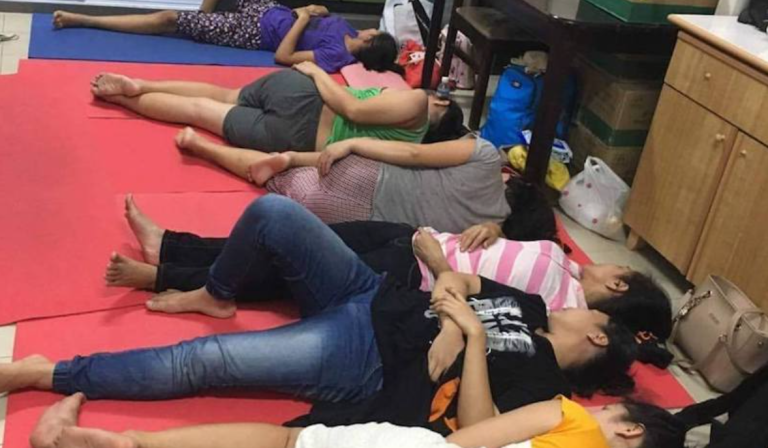
Ngun Cer in Macau
“Myanmar domestic workers in Singapore, China, Hong Kong, and Macau are not legal,” says Thein Zaw, Joint Secretary 1, Myanmar Overseas Employment Agencies Federation (MOEAF).
Thein Zaw explains that Myanmar legal workers have Overseas Worker Identification Cards issued by the Ministry of Immigration & Population, Department of Labour, before they leave the country. And if these workers have any problems in Macau, they can complain to the Department of Labour as well as the Myanmar Embassy.
Bawi Cung Lian, a pastor from Chin Christ Fellowship Macau (CCFM) with more than 200 members attending every Sunday, says “All the workers (Myanmar) coming to Macau come with a visitor visa, which allows them to stay 12 days. Workers and agents must find a job during these short days. If they can’t find then the worker might need to go back before their visa expires.”
Ngun Cer arrived in Macau on Feb. 12, 2019. A woman with curly hair, who appears to be about 60 years old, comes to the agent’s house in Macau.
The agent and the woman speak in Chinese. They check Ngun Cer’s travel document. They talk for a bit and nodding their heads. The agent moves closer to Ngun Cer. Ngun Cer recalls the agent saying, “You will follow this woman and stay in their house for three days,” she says in Burmese. “After three days, if there is no complaint from their end, we will draw up the contract.”
The woman says to Ngun Cer in English, “I will take you to my house, you can call me aunt.”
Ngun Cer looks up to her and doesn’t understand much about what she is talking about. The biggest problem for Ngun Cer is communication. She neither speaks English nor Chinese. She tries to catch on by observation.
They go to the house, the place where Ngun Cer is going to be working as a maid. The ‘aunt’ explains the layout of the house: where the toilet is, the bedroom is, she talks about what Ngun Cer needs to clean every day and shows her the kitchen and bedroom. There are a small boy and a lady, the son and daughter of the aunt. Ngun Cer does not see their father. But she finds their family picture.
For Ngun Cer, everything is new in Macau. The house is located on the seventh floor of one tall building. People need to use the elevator to access the house which she never saw in Chin state. In the kitchen, everything is electric, and she is not familiar with electric appliances.
The first morning, Ngun Cer heads to the kitchen, but she does not know how to start. Instead of preparing breakfast, she cleans the house and waits for them to wake up. The aunt wakes up at around 7:30 a.m. and speaks to Ngun Cer. Apprehensively, Ngun Cer can’t respond. She just asks to call her agent in Macau who speaks both Chinese and Burmese.
Ngun Cer explains to her agent that she doesn’t know how to start with cooking as she never cooks with electric stoves. The aunt teaches her how to turn on and shut off the stove.
Dar Hnem in Singapore, later in Macau
Dar Hnem, the mother of two girls, from …, a remote village in Chin State, heads to Yangon to work in the city in early 2018. Her wages in Yangon are not capable to support her two children, she then moves to Singapore as a house worker.
A 27-year-old woman, Dar Hnem says “In Singapore, the agent will take our first six months’ salary, and when we made sign the agreement with the house owner, a minimum two years is required.”
The Labour Mistry had lifted the ban preventing the country’s domestic helpers from travelling to work in Singapore and three other places – Thailand, Hong Kong, and Macau. As of 2019, an estimated 50,000 Myanmar women continued to travel to Singapore to work as maids through placement agencies in both countries, the Myanmar Times reported.
Dar Hnem recalls her biggest crisis in Singapore. The house owner, a thin body has a big mole on her cheek, slits for eyes, with curly hair, is quite active, and brutally forces Dar Hnem to work 16 hours per day. She says to Dar Hnem that she will not consent to her exit pass (permission to go out at the weekends) during the first six months.
“I have lost in touch with my daughters when I finish my work at 11 p.m., they have slept already. My mother at home used to send me their pictures, and she informed me that whenever they come back from the school, they will mournfully call out my name,” says Dar Hnem.
After one month of life in Singapore, Dar Hnem’s health could not endure the pressure and pushy manner of the woman and missing her two daughters. Sometimes she gets the jitters when she sees the mistress of the house.
One morning, Dar Hnem wakes up at 5 a.m., She feels her head is spinning, she is not normal like other days. She hears thunder, she opens the window, it’s drizzling. She wants to use the toilet, she approaches, but she can’t open the door, it takes her for a minute. When she opens the door, she is sweating a lot. She sits on the toilet, she has no strength to move forward. Slowly, she limps forward to her bed and lays down. Now, she faints and doesn’t know anything.
When she wakes up, she is at the Hospital, an oxygen mask on her mouth. A man standing in a white gown with long sleeves, and a gray goatee, gives her the thumbs-up sign. She gazes at the man, he nods his head and he slowly takes off the oxygen mask. Dar Hnem slowly turns her head and sees a clock on the wall; it’s 2:30 p.m.
The two nurses bring a gurney and come in the direction of Dar Hnem; they take out the intravenous needle. They transfer her to a gurney and push her to the ambulance. The vehicle is moving, but she does not know where they will bring her. When the ambulance stops, two men from the car open the door and carry her into the house. It is the agent’s house, the place where Dar Hnem stayed for one day when she first reached Singapore. There are eight women in the house; they talk to each other but Dar Hnem can’t understand their language.
Dar Hnem recalls “the women are from Thailand and the Philippines. When I first reached this house, there were 16 women from different countries, and I remember four were from Myanmar.”
Dar Hnem stayed for three days at the agent house in Singapore. The agent has no confidence on Dar Hnem’s health to find another job that she dejectedly repatriates her back to Yangon.
“One thing that I will never forget in my life was I came back to Yangon bare-foot,” says Dar Hnem.
“When I fainted at the house in Singapore, the woman forgot to send my slippers to the agent’s house, although she sent my other stuff.”
Dar Hnem reaches Yangon International Airport on Aug. 9, 2018. She comes out of the airport and there is a man from the agent in Yangon, standing outside waiting for her. When she meets with him, instantly he asks for Dar Hnem’s Passport. They take the Taxi toward their house. When they reach the house the man gives Dar Hnem’s Passport to the agent.
Dar Hnem recalls that the agent snubbed her when she reached the house. “You need to pay me back 200,000 Kyats (HK$ 1079). If you don’t pay me, I will not let you go out from my house and I will not return back your Passport,” the agent says.
Dar Hnem has nothing to say about what the agent demands, she felt desperate. Finally, she informs her mother at home about what she is facing. Knowing that her mother will not have that money, she needs to do so as she has no other options. Later, her mother asked for help from the villagers and send the ransom money to her daughter.
Dar Hnem, as she is in debt to her villagers, decides not to go back to her place and instead tries to find another job. Staying in Yangon for three months, finally, she meets with her old friend who directs her to an agent with connections in Macau. Dar Hnem has an opportunity to move to Macau, she reaches Macau in October 2018.
“As usual with Macau agents, they take all my first four months of wages. I start earning 4500 MOP (HK$ 4369) per month after four months of working,” Dar Hnem says.
“I have no father, my daughters have no father either,” says Dar Hnem, “My father passed away in 2010. My husband left us after I gave birth to our second daughter. After our divorce, he went to Malaysia and has another marriage. I don’t have siblings; I am the only daughter. I need to look after my mother and my two daughters. Ironically, I always want to see my small daughters, but I can’t go back, I will be in Macau until my daughters have finished their school.”
I always want to see my small daughters, but I can’t go back, I will be in Macau until my daughters have finished their school
-Dar Hnem
Salai Van Biak Thang says there are some jobs in Chin State with very few salaries that can’t cover their family livelihood which resulted in many Chin women working aboard.
“In the city like-Hakha, Falam and Thantlang, we do have some available jobs, but not many. For instance, if they work in the market as a shopkeeper, they can earn between 80,000 to 150,000 MMK (HK$ 467 – 877) in a month. People who come from a remote village need to pay for another renting and their daily meals. When they pay everything, it has nothing left from their salary. That why many Chin has chosen to work aboard.”
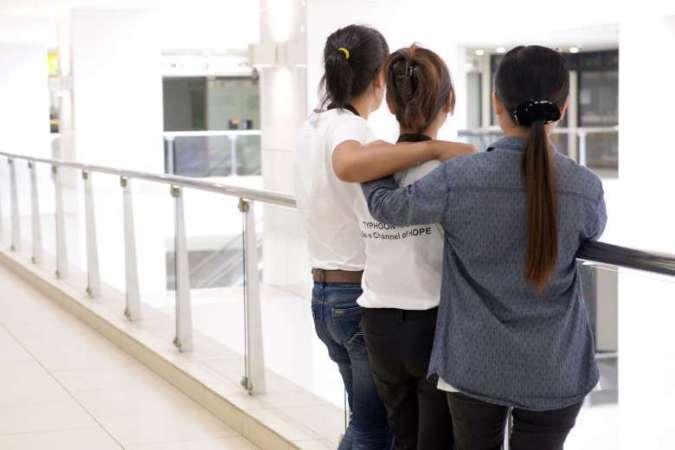
Blue Card
There are three types of ID cards in Macau according to Quora. White, Yellow and Blue Cards. Blue Cards are for those working in Macau legally. And, as of November 2019, there are 2,987 people from Myanmar who hold the Blue Card in Macau according to Myanmar Consulate in Hong Kong (SAR).
Ngun Cer, after four days of working in the house (observation period), the ‘aunt’ calls agent; they speak in Chinese. Then, the phone is given to Ngun Cer.
“We have some good news for you,” the agent tells on the telephone calls, “Your aunt wants to draw up a contract with you, so we will process a blue card for you tomorrow.”
Ngun Cer does not know what a blue card is and says “While I was in the agent’s house, the agent told me I have to get a job within ten days, if I can’t get one, then I will need to go back to my country and have to give back all the transportation fees to agent.”
The next morning, Ngun Cer prepares breakfast and she informs her aunt when it is ready. Member of her employer’s family; a little boy and a lady with their mum take their place at the table for breakfast. Ngun Cer takes her breakfast in the kitchen.
“The kitchen is the place where I have my meals; breakfast, lunch, and supper. On the first day in this house when I talked with my agent, she told me that I had to eat separately from them” Ngun Cer says.
When they finish their breakfast, the aunt gives Ngun Cer’s Passport. She asks Ngun Cer to follow. They go out of their house and use the elevator. When they are in the elevator, her aunt press ‘G’ and Ngun Cer doesn’t know what that means. She sees numbers are written on the left and right side of the elevator. She counts it 1,2,3… ends with 31.
Then, they ride the car towards Immigration Services of the Public Security Police Force. Her aunt is driving, Ngun Cer sits in the back. Aunt plays a piece of music, a Chinese song. When the phone rings, she reduces the volume and talks in Chinese. Ngun Cer remembers that her aunt talks ‘five minutes’. The car stops; the aunt gets out of the car but Ngun Cer is sitting inside. The door opens from outside and Ngun Cer sees her agent.
Ngun Cer recalls the agent is saying “You just need to follow us and do whatever I tell you to do inside the building.”
When they are inside the building, Ngun Cer doesn’t know what they are talking about with the officer. She says “I remember that I signed some papers, the officer took my fingerprints, that was all we did in the office and then we left.”
After four months, the agent calls Ngun Cer, and there she gives Ngun Cer’s her Blue Card and Bank Account. Ngun Cer recalls the agent says to her “Good luck Ngun Cer, you now can start earning your wages into your Bank account.”
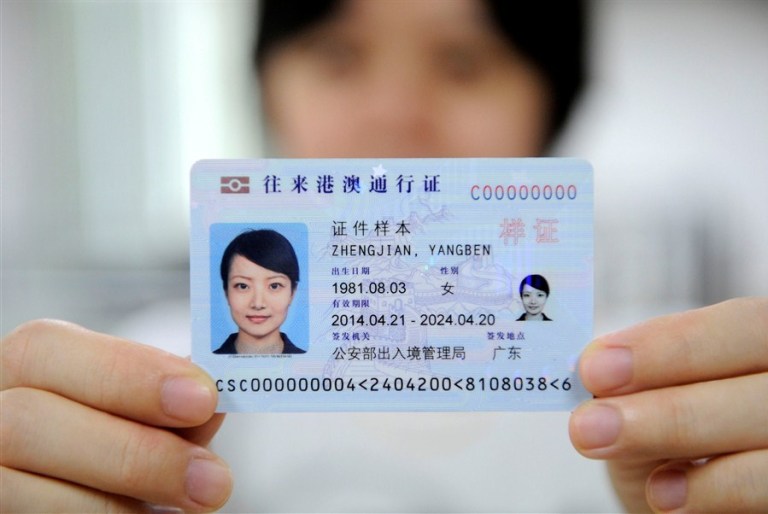
Tears with Ngun Cer in CCFM Church
After four months of toiling inside the house owner’s flat, Ngun Cer can now start meeting her fellow citizen outside, twice a month only on Sundays. If Ngun Cer takes more than that her employer will deduct 200 MOP each day.
One Sunday morning in July 2019, one Chin woman from the agent’s house, who is helping the agent in Macau calls Ngun Cer; and asks if she wants to follow her to Church. Ngun Cer says ‘Yes’.
As they walk on the pavement, Ngun Cer hears singing in the Chin language. When they get closer to Church, Ngun Cer recognizes the song, which she used to sing in church in the village. She is overwhelmed with joy.
When they enter the Church, Ngun Cer sees many people, more than 200 and the majority are women, they sit on the floor, on which is placed a carpet. At the front of the church, a man is holding the guitar, and another two are sitting on chairs; there is a table in front of them and a Bible on the table.
Ngun Cer recalls one man stands up and says “Before we go any further of our service, as usual, I would like to invite you to stand up if it’s your first time in this Church.”
“In Chin State, more than 85% of the population are Christian and we can’t separate with the Church wherever we are,” says Rev. Bawi Hoe, a senior pastor in Salem Baptist Church.
Ngun Cer stands up, she sees another three women standing. A man comes forward to Ngun Cer and gives her a mic to introduce herself. Shyly, Ngun Cer takes the mic, she tells them her name and where she comes from. Ngun Cer can’t continue, she is sobbing.
“That day, when I saw my fellow people, I was so happy that I could control myself and I was overcome with sorrow,” Ngun Cer says.
The service lasts over an hour, people are staying for refreshments. Ngun Cer hears people greeting each other, talking about what they are going to do, some say they will hang out at the restaurant, some say they will go out hiking. Some are coming to Ngun Cer, they greet her and share their Facebook account.
Whenever Ngun Cer has an out pass, she attends the Church service in CCFM. After the service, women are bonding with their own group and enjoy the day. “It has not been easy when evening comes and it’s time to say goodbye to each other,” says Ngun Cer.
After some time, Ngun Cer intuitively knows how to use the electric stoves in the kitchen, the food that aunt’s family likes and how to go the market. If she faces any difficulty, she will contact friends from outside and ask them what to do.
Ngun Cer comes back from the church and takes a shower. She is so excited to inform her mum that she will start earning her salary. She calls one of her friends who live in Hakha to inform her mum that she is going to send money by next month for her brother’s education.
Ngun Cer says “in my village, only two houses have a telephone. Every day, there are many people who used those phones and sometimes we need to make a line even just to make a local call.”
A few later, Ngun Cer hears her name is calling out. She goes out abruptly and sees her aunt is drinking a beer, as usual, every night. The woman asks for water in the kitchen. Ngun Cer needs to wait for her until she finishes. After the woman goes to the bed Ngun Cer cleans the table and starts prepares for the next morning breakfast. When she finishes all the housework, she then goes to the bed put her alarm by 7 a.m., reads the bible, prays, and sleeps.
“Life in Macau means depending upon the employer. If you get a good employer, they will treat you well and if you get a bad employer your life in Macau will be hard,” says Ngun Cer.

This research article was first published in Chin for The Chinland Post.
Za Bawi Thawng is a Chin journalist and former Editor-in-Charge at The Chinland Post. He is currently completing an M.A., in International Journalism at Hong Kong Baptist University. – Editor ([email protected])


